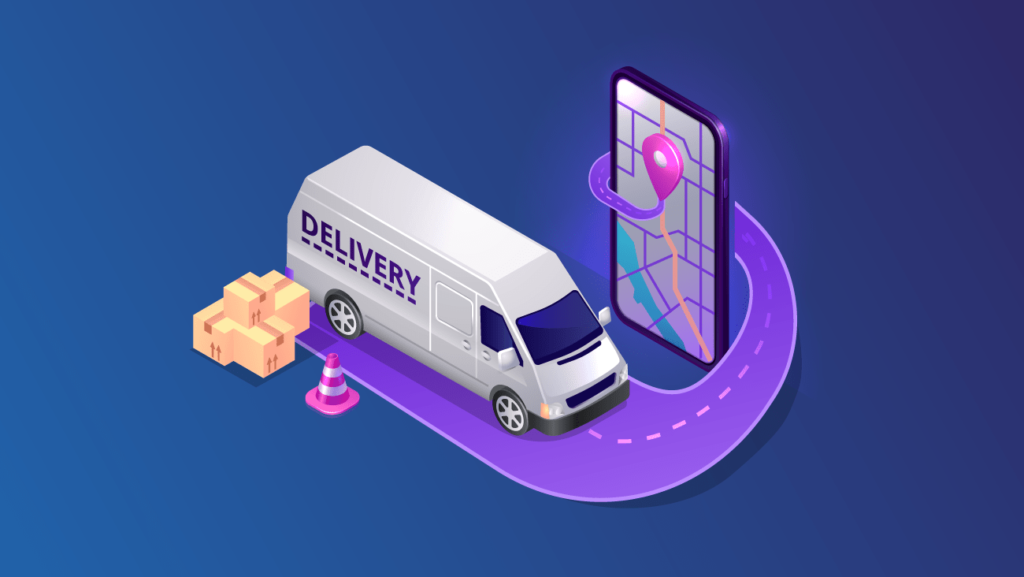Table of Contents
Logistics is one of the biggest industries in the world, displaying a steady growth rate every year. In 2018, the size of a global logistics market was $9.6 trillion and some analysts predict it to reach $12 trillion by 2023.
The steady growth and the advancement of technology create brand-new issues for the logistics industry to resolve. In order to remain competitive and adhere to the demands of the market and the customers, companies in the sphere of logistics need to deploy sophisticated technologies for better process management.

The current issues of the logistics industry
In order to better understand the benefits that digitization brings to the logistics and supply chain industry, it is necessary to first outline the main issues that the industry faces.
Scalability
With globalization and digitization, growth is inevitable. Companies explore new markets and expand their presence, at the same time, significantly increasing the number of customers, suppliers, and other involved parties. Thus, the company’s infrastructure grows as well and demands a high level of scalability.
Customers’ demand
The key things that modern customers demand are speed and efficiency of service. And if a company uses outdated tools, that might be an issue. As well, modern customers want new kinds of experience and expect the companies to go the extra mile in order to satisfy them. This relates to an incredibly high level of competition among the companies in the logistics industry.
Outdated tools
Many established logistics companies have been operating for over 10 years, if not more. That’s a long time during which certain tools have become outdated and inefficient. In order to successfully perform all the needed operations and correspond to the market requirements, companies need powerful tools and technologies that will bring them new opportunities.
Now that we had a look at the issues that logistics faces, it’s time to have a look at the benefits that technology brings to logistics and the ways it resolves these issues.
Internet of Things
Internet of Things remains a big trend that transforms numerous industries and logistics is no exception. Since IoT is all about connected devices and their ability to “communicate” to each other, it offers a whole lot of new opportunities in terms of automation. By implementing IoT into certain logistics processes, companies may enable certain devices (like drones) to communicate with warehouses or independently deliver goods through communication with different touchpoints. This will lead to delivery automation for certain distances and areas, which, in turn, will be very costly and time-saving.
As well, IoT can significantly facilitate the warehouse operations by automating most of them and enabling devices to act autonomously. We can already see the early concepts of “smart warehouses” delivered by DHL (in collaboration with Cisco Systems and Conduce). So we might as well expect other areas of logistics and supply chain management to be automated in a similar way.
Machine learning
Even though Machine Learning is a subset of IoT, it’s worth being mentioned separately due to all the benefits this technology brings.
One of the biggest benefits of ML is predictive analytics. This category of data analytics analyzes historical data and, by using ML technology, builds accurate forecasts. The ML technology is capable of finding hidden and non-obvious patterns and dependencies in the data and thus, can build more precise and accurate predictions than people. For the companies, predictive analytics is a valuable asset as it allows to precisely analyze the past mistakes, the current company status and helps adjust the strategy for the future.
As well, ML significantly facilitates inventory management. Machine Learning can instantly estimate how many goods are currently at stock, which ones will be at most demand and which ones will not find the market. In this way, providers can manage their resources and finances in a wiser manner, precisely adjusting the offer to the demand.
One more key benefit of using ML in logistics is preventative maintenance. Since there are lots of sensitive tools involved in the logistics processes, it is essential to timely identify any problems with them since even the slightest malfunction can lead to serious consequences. Machine Learning can analyze the performance of these tools, timely recognize any issues, and notify the personnel about them. Such an approach can help save a significant amount of money and resources on the repair.
Logistics Management System
A Logistics Management System is a software that helps manage all logistics-related operations in a centralized and efficient manner. Due to the number of processes, an LMS system normally consists of several modules, each dedicated to a specific task:
- Order management,
- Inventory management,
- Warehouse management,
- Transport management,
- Reporting,
- Analytics.
When choosing an LMS, one can either select an out-of-the-box solution or develop custom software. A ready product will be immediately available and will cost less but it might have limited functionality and flexibility. A custom solution, on the other hand, will be designed specifically for your business needs but it will take more time and finances to develop such a solution.
It is highly recommended to use an LMS solution as it keeps all the operations in one place, grants immediate access to any information, and helps manage the processes faster and more accurately.
The issues to consider when adopting a software solution for your business
Logistics is an incredibly complex industry so any company that wishes to digitize its processes needs to consider a few issues beforehand.
Will the use of this technology maximize your profit in the long run?
As soon as a new tech trend emerges, companies tend to immediately adopt it, trying to stay competitive and modern. Unfortunately, not all business owners analyze the consequences of such adoption and, as a result, they might gain more losses than profit.
Therefore, the first question to ask is whether you really need a tech solution and for what specific problem. Is it that your tools are outdated and you cannot manage the growing demand? Or do you wish to become more competitive and look for an innovative solution?
Before contacting a development company or choosing a readymade solution, write down the business goals that you need to reach and the current issues that your company experiences. In this way, you will be able to take a more precise approach and find a solution that would really fit your needs.
Do you have the required IT capacity?
Another critical issue is the IT capacity of a company. There is an array of questions to answer:
- How will the data be stored?
- Can your current storage manage the expected amount of data?
- Can your current systems support the intended innovation?
- Are you equipped with all the necessary tools?
And these are not all the questions to answer. It is important to remember that any major technological innovations require specific conditions so you need to take care of them first. Prepare your company for the change in advance, otherwise, you will double your work in the future.
How will you train the employees?
The integration of new technology inevitably leads to the necessity of training the employees. Therefore, another issue for the employer to resolve is employee training.
One needs to think about the frequency of training, levels of access to the system, training methods, and many other things. As well, if a new solution is too complex, the employer might consider adopting a learning system. SoftTeco, for example, designed an educational platform that can be adjusted to one’s software and serves as an educational walkthrough. In this way, employees can learn faster and better, thanks to the tips, navigation through the needed software, and the opportunity to test it before starting work.
Summary
Even though some logistics companies remain hesitant about the change, the digital transformation of the industry is inevitable. Digitization helps logistics companies expand their collaboration and geographical presence, cater to more customers, and deliver their services in a much more efficient and customer-friendly manner. While complete technological transformation is not obligatory, every logistics company should consider minor technological changes that will lead to improved performance and profitability.



Comments